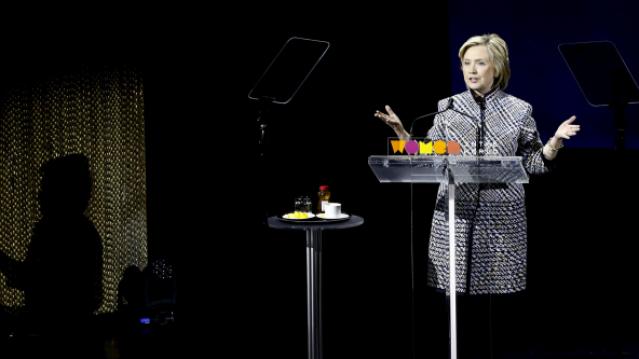A Demographic Edge for Hillary Clinton in 2016
Are the GOP’s 2016 presidential hopes dying out?

No matter how many GOP candidates enter the 2016 presidential sweepstakes, it will be an uphill climb for any Republican to secure the White House. That’s not simply because Democratic voters outpace Republicans by a four-point edge, according to Gallup. It’s because the GOP is dying — literally —according to an analysis published Sunday in Politico.
Seems 2.75 million Republican voters will be dead by the time the 2016 election rolls around, Daniel J. McGraw claims in what he calls his “back-of-the-napkin” math. By comparison, roughly 2.3 million Obama supporters will have died by the time the 2016 election rolls around. McGraw is right, of course, that Republicans tend to be older than Democrats, and that the surge of millennials (about 78 million) tends to vote Democratic. They’re young, energetic, tilt left on social issues like gay marriage and believe women are underrepresented in the boardroom as well as the White House.
Republicans could still connect with millennial voters on economic issues, but on the whole, the demographic trends will only make it harder for the GOP’s eventual nominee.
Related: How the Clinton Scandals Can Bring Down the Democrats
McGraw’s estimates can only go so far, though. They can’t fully account for state-by-state differences that could tilt the Electoral College, and they don’t factor in specific candidates and how they might appeal to various age groups, or not. Can a youthful Marco Rubio, for example, find a way to draw younger voters? Will Hillary Clinton trip over her political baggage, packed in part by her husband?

In the end, regardless of who is nominated by the GOP, the election will rest on the 43 percent of Americans who identify themselves as independents. Including independents, Democrats had a three-point edge as of last year. But if McGraw is right, that edge could widen before long.

Deficit Hits $738.6 Billion in First 8 Months of Fiscal Year

The U.S. budget deficit grew to $738.6 billion in the first eight months of the current fiscal year – an increase of $206 billion, or 38.8%, over the deficit recorded during the same period a year earlier. Bloomberg’s Sarah McGregor notes that the big increase occurred despite a jump in tariff revenues, which have nearly doubled to $44.9 billion so far this fiscal year. But that increase, which contributed to an overall increase in revenues of 2.3%, was not enough to make up for the reduced revenues from the Republican tax cuts and a 9.3% increase in government spending.
Tweet of the Day: Revenues or Spending?

Rep. Kevin Brady (R-TX), ranking member of the House Ways and Means Committee and one of the authors of the 2017 Republican tax overhaul, told The Washington Post’s Heather Long Tuesday that the budget deficit is driven by excess spending, not a shortfall in revenues in the wake of the tax cuts. The Wall Street Journal’s Kate Davidson provided some inconvenient facts for Brady’s claim in a tweet, pointing out that government revenues as a share of GDP have fallen significantly since 2015, while spending has remained more or less constant.
Chart of the Day: The Decline in IRS Audits

Reviewing the recent annual report on tax statistics from the IRS, Robert Weinberger of the Tax Policy Center says it “tells a story of shrinking staff, fewer audits, and less customer service.” The agency had 22% fewer personnel in 2018 than it did in 2010, and its enforcement budget has fallen by nearly $1 billion, Weinberger writes. One obvious effect of the budget cuts has been a sharp reduction in the number of audits the agency has performed annually, which you can see in the chart below.
Number of the Day: $102 Million

President Trump’s golf playing has cost taxpayers $102 million in extra travel and security expenses, according to an analysis by the left-leaning HuffPost news site.
“The $102 million total to date spent on Trump’s presidential golfing represents 255 times the annual presidential salary he volunteered not to take. It is more than three times the cost of special counsel Robert Mueller’s investigation that Trump continually complains about. It would fund for six years the Special Olympics program that Trump’s proposed budget had originally cut to save money,” HuffPost’s S.V. Date writes.
Date says the White House did not respond to HuffPost’s requests for comment.
Americans See Tax-Paying as a Duty

The IRS may not be conducting audits like it used to, but according to the agency’s Data Book for 2018, most Americans still believe it’s not acceptable to cheat on your taxes. About 67% of respondents to an IRS opinion survey “completely agree” that it’s a civic duty to pay “a fair share of taxes,” and another 26% “mostly agree,” bringing the total in agreement to over 90%. Accounting Today says that attitude has been pretty consistent over the last decade.



